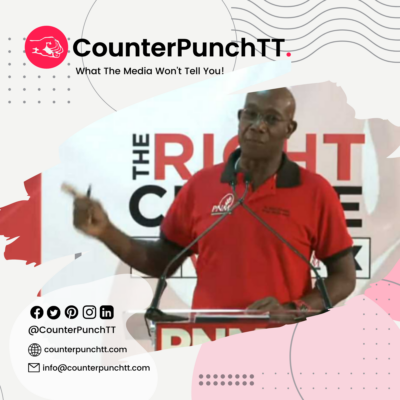THE Queen, whose funeral President Paula-Mae Weekes is attending, delivered a throne speech at the start of each British parliamentary term.
The address outlined priority laws and policies for the forthcoming legislative term.
The speech was largely prepared by the British Government but had valued input from the monarchy.
The public was duly informed of the Government’s programme of measures and its main governance concerns.
During the parliamentary term, the Queen would occasionally ask the Prime Minister – at their weekly meetings – about progress in the relevant matters and would exert subtle pressure in fulfilling the obligations.
Trinidad and Tobago has largely adopted the British Westminster system, including an implicit “throne” speech from the Head of State.
But unlike the British monarchy, the T&T President has historically opted for a mild cocktail of gentle chiding, pleasantries, and pretentious remarks.
It’s as if the Head of State is afraid to offend the Government, which dictates whom the Electoral College sends to President’s House.
But even by the indifferent and hollow nature of Presidents’ addresses at the opening of a local parliamentary term, Weekes’ speech last week betrays an office-holder ill-suited and out of depth.
The President’s patronising blend confirms that she remains an inappropriate choice for that exalted ceremonial office, especially during this critical time.
Her term of office expires next March, and society should generously permit her to return to retirement anonymity, where she is undoubtedly comfortable in not influencing national debate or discourse.
A conscientious and diligent Head of State would have implored legislators to urgently confront the ever-worsening crime horror, poverty, deplorable infrastructure, and overall hardship.
Such a concerned President would ideally be the conscience of a besieged nation savaged by life-altering problems.
She would have delicately presented herself as a restrained voice of the voiceless.
In what appeared to be a blip in her tenure, Weekes referred to national troubles during her Independence message, in which she termed T&T “a restless nation” and “a wilderness.”
She bemoaned the “increasingly brazen criminality, ugly divisive politics, rampant unemployment, distressing reports of child abuse, and troubling poverty.”
But she hurried back into her presidential cocoon and emerged with arrant inanities at the start of the parliamentary term.
The nation has a right to agonise over Weekes’ futile tenure and her failure to sit our imagination, earn our respect, and inspire our spirit.
Yes, the presidency is essentially ceremonial, but an ingenious office-holder would have offered appropriate pep talks, conscience-stirring addresses, and moral guidance.
Instead, Weekes’ cultivated image is as a frequent flier with an extravagant social life, even as hundreds of thousands struggle to put food on the table.
As Head of State, her wrecked depiction is a throwback to Ellis Clarke, who, in the 1970s, branded skeptics “prophets of doom and gloom.”
Mighty Sparrow provided an aggressive rejoinder in song:
“If you tell them the economy is no longer in full bloom
“You become a prophet of doom and gloom.”
Thankfully, President Weekes has not become a virtual limb of the political administration, like Clarke, but her stabs of conscience are much too infrequent and feeble.
Trinidad and Tobago deserves a Head of State with the outlook of a concerned aunt, unafraid to speak truth to power, and inclined to curb the lavish plums of office.
Weekes has not showcased courage nor motivated a troubled land with conviction and character.
And her regular international travels conjure up images of the good life in the midst of grinding poverty and starving children.
An appropriate Head of State must have the fortitude, finesse, and forbearance, to match achievement, authority, and appeal.
Paula-Mae Weekes is another failed public official.
Next March gives the Electoral College one more opportunity to get a President with a neat combination of all the desired attributes as our country stumbles through nationhood.
Trinidad and Tobago deserves no less.
WEEKES ANOTHER FAILED PUBLIC OFFICIAL
By KEN ALI
THE Queen, whose funeral President Paula-Mae Weekes is attending, delivered a throne speech at the start of each British parliamentary term.
The address outlined priority laws and policies for the forthcoming legislative term.
The speech was largely prepared by the British Government but had valued input from the monarchy.
The public was duly informed of the Government’s programme of measures and its main governance concerns.
During the parliamentary term, the Queen would occasionally ask the Prime Minister – at their weekly meetings – about progress in the relevant matters and would exert subtle pressure in fulfilling the obligations.
Trinidad and Tobago has largely adopted the British Westminster system, including an implicit “throne” speech from the Head of State.
But unlike the British monarchy, the T&T President has historically opted for a mild cocktail of gentle chiding, pleasantries, and pretentious remarks.
It’s as if the Head of State is afraid to offend the Government, which dictates whom the Electoral College sends to President’s House.
But even by the indifferent and hollow nature of Presidents’ addresses at the opening of a local parliamentary term, Weekes’ speech last week betrays an office-holder ill-suited and out of depth.
The President’s patronising blend confirms that she remains an inappropriate choice for that exalted ceremonial office, especially during this critical time.
Her term of office expires next March, and society should generously permit her to return to retirement anonymity, where she is undoubtedly comfortable in not influencing national debate or discourse.
A conscientious and diligent Head of State would have implored legislators to urgently confront the ever-worsening crime horror, poverty, deplorable infrastructure, and overall hardship.
Such a concerned President would ideally be the conscience of a besieged nation savaged by life-altering problems.
She would have delicately presented herself as a restrained voice of the voiceless.
In what appeared to be a blip in her tenure, Weekes referred to national troubles during her Independence message, in which she termed T&T “a restless nation” and “a wilderness.”
She bemoaned the “increasingly brazen criminality, ugly divisive politics, rampant unemployment, distressing reports of child abuse, and troubling poverty.”
But she hurried back into her presidential cocoon and emerged with arrant inanities at the start of the parliamentary term.
The nation has a right to agonise over Weekes’ futile tenure and her failure to sit our imagination, earn our respect, and inspire our spirit.
Yes, the presidency is essentially ceremonial, but an ingenious office-holder would have offered appropriate pep talks, conscience-stirring addresses, and moral guidance.
Instead, Weekes’ cultivated image is as a frequent flier with an extravagant social life, even as hundreds of thousands struggle to put food on the table.
As Head of State, her wrecked depiction is a throwback to Ellis Clarke, who, in the 1970s, branded skeptics “prophets of doom and gloom.”
Mighty Sparrow provided an aggressive rejoinder in song:
“If you tell them the economy is no longer in full bloom
“You become a prophet of doom and gloom.”
Thankfully, President Weekes has not become a virtual limb of the political administration, like Clarke, but her stabs of conscience are much too infrequent and feeble.
Trinidad and Tobago deserves a Head of State with the outlook of a concerned aunt, unafraid to speak truth to power, and inclined to curb the lavish plums of office.
Weekes has not showcased courage nor motivated a troubled land with conviction and character.
And her regular international travels conjure up images of the good life in the midst of grinding poverty and starving children.
An appropriate Head of State must have the fortitude, finesse, and forbearance, to match achievement, authority, and appeal.
Paula-Mae Weekes is another failed public official.
Next March gives the Electoral College one more opportunity to get a President with a neat combination of all the desired attributes as our country stumbles through nationhood.
Trinidad and Tobago deserves no less.




